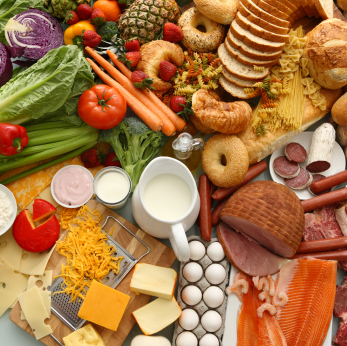I love to cook and over the last year, I’ve been keeping track of what I eat and how it affects my body’s energy level and mental capacity. It’s been a fun and delicious experiment.
Here’s what has worked for me:
- Plenty of protein. Protein is great because it processes slowly – slower than carbs – so that means it provides a long-lasting boost. Chicken is my tasty protein source of choice.
- Cutting the carbs. Carbs provide a quick energy boost, but they turn into sugar when processed. Whatever is not used turns into fat.
- Going green. I try to eat something green – broccoli, green beans, salad – at every meal. Mint Oreos unfortunately do not count.
- Sweet on supplements. I take fish oil pills, rich in omega-3 fatty acids that are good for brain function. I (and my family) like it when my brain functions, so I take 4 pills a day. I especially make sure to take them before my reading and writing time in the morning.
- Junking the junk food. I’ve kicked soft drinks, sugary cereals, chocolate, and processed foods to the curb. If you have kids (or are one), you’ve probably seen how sugar can take them to another level of hyperactivity, whether they have ADHD or not.
Before I started watching how my diet affected me, I was having a hard time. I ate cereal in the morning – even the low-sugar ones – and by 9:00 AM, I was exhausted and extremely hungry. My body burned through the carbs and left me out of gas.
It even made battling my ADHD much harder. The things that can be used to combat ADHD – like digging deep and mustering the will power – weren’t even possible because I had no energy to focus.
Learning from and changing my breakfast routine have drastically improved how my days start, which ends up making life better in general. It just shows how listening to your body a little can make a big difference.
Next time, we’ll talk about how you can apply some of my experiences to your life and diet. Regardless of how you feel about meds, an improvement in diet can be a much easier pill to swallow to treat your ADHD.

